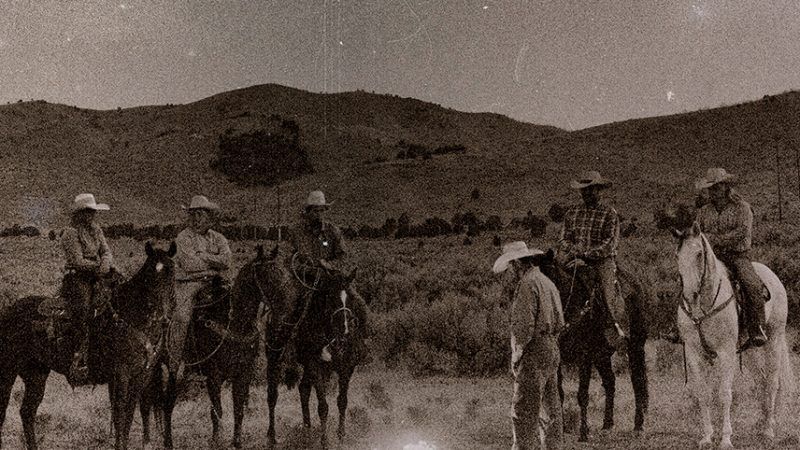Out West, Rules Are Made To Be Broken

I fell in love with the wide-open West during a cross-country drive that followed what's left of Route 66, starting in over-governed Boston, ending in overcrowded Los Angeles, and traversing the wonderful places in between. I remember looking down crumbling strips of pavement, across the empty desert, up at the brightly speckled night sky, and thinking, "Hot damn. There isn't a soul around to screw with me."
To roam the West at all is to inevitably cut across the trail of the late Edward Abbey. The writer with a fondness for untamed places famously commented, "We cannot have freedom without wilderness, we cannot have freedom without leagues of open space beyond the cities, where boys and girls, men and women, can live at least part of their lives under no control but their own desires and abilities, free from any and all direct administration by their fellow men."
Interestingly, Abbey (who has somewhat fallen out of favor in environmentalist circles for his gritty personality, pronounced xenophobia, and anarchic ways) wrote that he was not "primarily concerned with nature as living museum" but rather "for the terror, freedom, and delirium" and "as a place of refuge, as a hideout, as a base from which to carry on guerrilla warfare against the totalitarianism of my nightmares." He granted wilderness status to 1960s Hoboken's decaying waterfront in his essay "Freedom and Wilderness, Wilderness and Freedom"—for its uncontrolled, undesigned character, rather than for any stray elements of nature.
The uncontrolled quality of the West can be overstated, if you take too seriously the reams of laws and regulations that claim to control people's conduct off the beaten trail. The Bureau of Land Management, Forest Service, Park Service, and myriad state agencies are all fond of interpreting laws and issuing rules that dictate what you can't do and where you can't do it, subject to further elaboration. But the "no campfire" signs are often found next to recent fire pits, the "no shooting" signs are almost always peppered with bullet holes, and the "permit required" signs decorate the periphery of areas that play host to many wonderfully unpermitted expeditions and activities. That's as it should be—after all, one reason we're out there is to flip the bird to the sort of people who post signs.
"The wilderness movement, which began in the mid-19th century with Thoreau," Randy J. Tanner, then of the University of Montana, grudgingly acknowledged in a 2005 paper, "was rooted in a brand of freedom characterized by the absence of human control." While admitting that he counts himself among those who prefer a more rule-bound world, Tanner allows that "the benevolent dictator is a despot to some" and that conflict can be avoided only if some concessions are made to those who just want to be left alone.
Outdoors, conflict is fairly easy to avoid because of the sheer scope of things. Once you're more than a mile or two from a trailhead, people become few and far between. Leaving the trail entirely is an almost certain means of guaranteeing yourself unbothered solitude—so long as you've some mastery of compass, GPS, bearings, or at least bread crumbs. If not, you may get entirely too much solitude, and of greater than desired duration. But done with proper care, you can have all the space you want, sovereign unto yourself and subject to only those rules that suit your whim. The lines on a map detailing areas of authority and applicable regulations become awfully theoretical when there's nobody around to apply them.
Sunday afternoons are my usual time to hop the fence into Forest Service land. I have a little water, a little lunch, a pair of binoculars, and maybe a companion, if he or she can keep up. I feel myself become free of dictates, demands to pick a side in our tribal times, proscriptions, requirements, and other annoyances. I leave refreshed. In places where the ratio of cactuses to control freaks favors prickly plants over pricks, it's possible to sense tension of which I wasn't even aware slip away.
And maybe it's good for the powers-that-be, too, to know that just as there are always people beyond their reach, there remain places beyond their authority. Our rulers need to be reminded as much as do those they would rule of the importance of wild places for wild people.
This article originally appeared in print under the headline "Out West, Rules Are Made To Be Broken."


Show Comments (12)